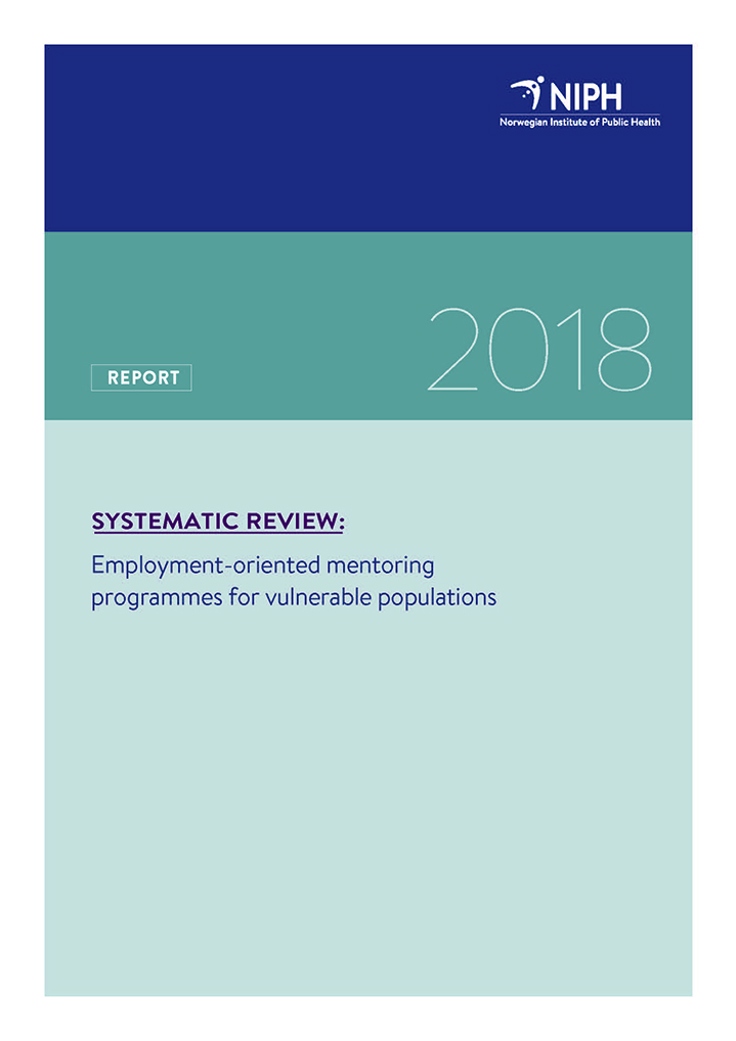Employment-oriented mentoring programmes for vulnerable populations: a systematic review
Systematic review
|Published
This is a a systematic review on the effect of employment-oriented mentoring programmes for vulnerable populations, including immigrants, persons with chronic physical and mental health issues, addiction problems or persons considered to be low-skilled, on employment-related outcomes.
Key message
The division of health services in the Norwegian Institute of Public Health was commissioned by the Norwegian Directorate for Integration and Diversity (IMDi) to conduct a systematic review on the effect of employment-oriented mentoring programmes for vulnerable populations, including immigrants, persons with chronic physical and mental health issues, addiction problems or persons considered to be low-skilled, on employment-related outcomes.
Method
We conducted a systematic review in order to identify, critically appraise and synthesize relevant studies on employment-oriented mentoring programmes for vulnerable populations. We planned to include controlled studies (studies with control group or interrupted time series) about employment-oriented mentoring programmes delivered to vulnerable populations over 18 years, compared to no intervention or job activation intervention that comprised no actual mentoring component. The main outcome was obtaining full or part-time employment. Secondary outcomes were psychosocial outcomes and education.
A systematic literature search was performed in March 2018. Two researchers, independently, first read through all references and then the identified, possibly relevant, full-texts.
Results
No studies met the inclusion criteria. There is a gap in research about the effects of employment-oriented mentoring programmes for vulnerable populations. Future systematic reviews or mapping reviews could consider summarising studies about experiences with mentoring programmes.


